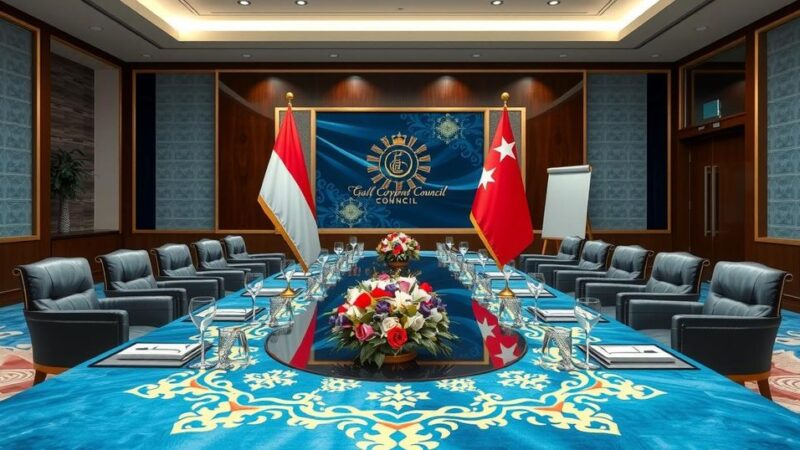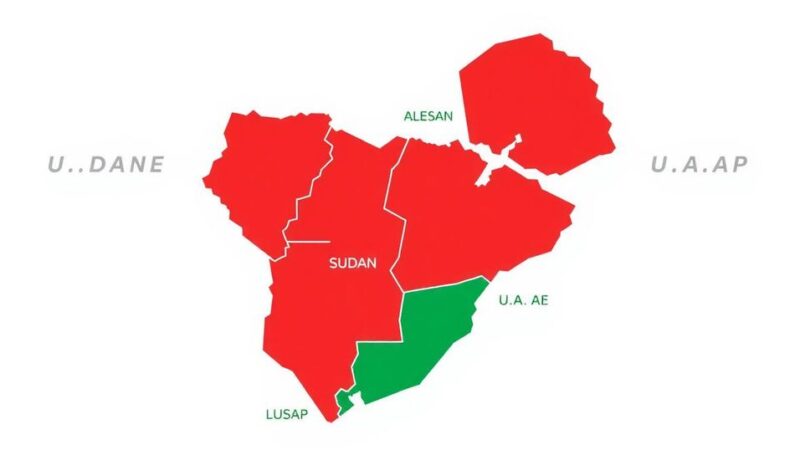Arab Americans who hosted Donald Trump in Dearborn are urging him to call for a ceasefire in Gaza and Lebanon after his electoral victory. Their letter, signed by key community leaders, highlights concerns about recent appointments potentially undermining their interests and reiterates their instrumental role in Trump’s win. The urgent plea comes in light of continued violence in the region, underscoring the community’s push for diplomatic engagement and accountability.
Arab Americans who previously hosted Donald Trump in Dearborn are now urging him to advocate for a ceasefire in Gaza and Lebanon. In a letter sent following his election, prominent Lebanese Americans in Dearborn expressed their wish for Trump to utilize his political influence to facilitate an immediate ceasefire, highlighting the urgency of the ongoing conflict and honoring Trump’s earlier promises for lasting peace. The letter emphasized how the Arab American community, particularly Lebanese Americans, played a pivotal role in Trump’s electoral success in the region, signifying the importance of their concerns in his administration. The communication, co-signed by Faye Nemer, CEO of the MENA American Chamber of Commerce, and Albert Abbas, the chamber’s Lebanese community liaison, noted that recent cabinet appointments by Trump have raised apprehensions within the Arab American community. Figures such as Mike Huckabee, who has made controversial statements regarding Palestinians, have drawn criticism for potentially undermining the support of this demographic. The letter called for a chief negotiator for Lebanese interests and reinforced the need for an unconditioned ceasefire to enable a more sustainable dialogue in the Middle East. Amidst these discussions, the community has actively engaged with the Trump administration, having initiated contacts that relate back to an outreach effort during Trump’s campaign, which saw a warm reception from Dearborn’s Arab American population. However, despite their pleas, Trump has yet to publicly address these calls for a ceasefire or openly criticize Israel’s military actions in the region, continuing a pattern of silence on the matter. In parallel, advocacy efforts are also directed toward President Biden, emphasizing the urgency of action in support of peace and accountability in the region amidst a complex backdrop of political expectations from both parties.
The city of Dearborn, Michigan, is home to a significant population of Arab Americans, particularly Lebanese Americans, who played a crucial role in influencing the recent presidential election results. Amid rising tensions and military actions in Gaza and Lebanon, members of this community are increasingly vocal regarding their desire for peace initiatives and diplomatic interventions from elected officials, especially Donald Trump following his victory. Their outreach is not just a reaction to current events but also a reflection of their strategic importance in the electoral landscape, which they hope will be recognized by the new administration.
In summary, the Dearborn Arab American community is pressing President-elect Donald Trump to advocate for a ceasefire in Gaza and Lebanon, emphasizing their significant role in his electoral success. The letter sent to Trump reflects a deep concern for the ongoing conflicts and calls for immediate diplomatic actions. As cabinet appointments raise concerns, the community remains hopeful that their voices will influence foreign policy and contribute to achieving lasting peace in the region.
Original Source: www.freep.com






